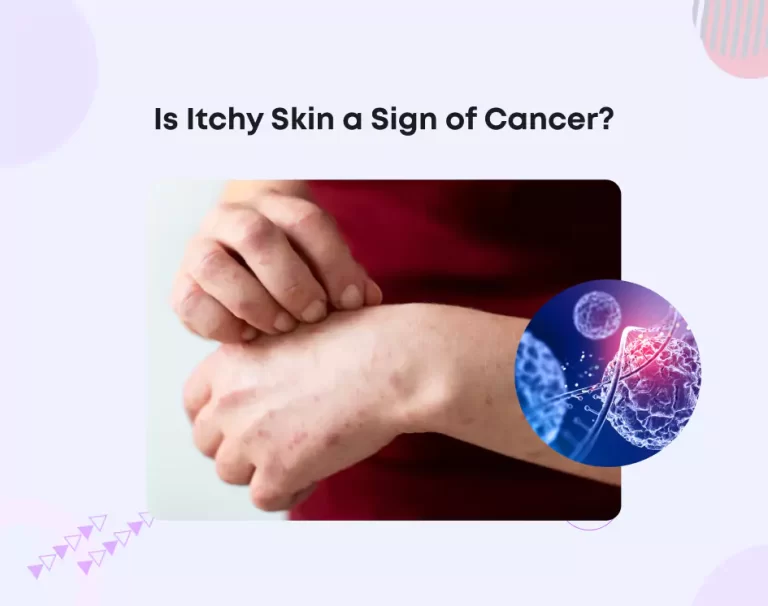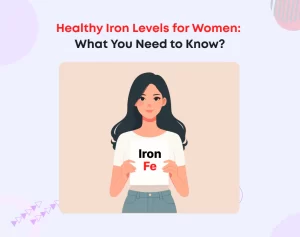
Is Itchy Skin a Sign of Cancer?
Itchy skin is a common and often temporary condition that can be caused by a variety of factors, ranging from dry skin to insect bites or allergic reactions. However, if you’ve been experiencing persistent or unexplained itching, you might wonder if it could be a sign of something more serious, such as cancer.
While itchy skin on its own is rarely indicative of cancer, there are certain conditions related to cancer where itching could be a symptom. In this post, we’ll explore the connection between itchy skin and cancer, when to be concerned, and what other symptoms to watch for.
What Causes Itchy Skin?
Before diving into the possible links between itchy skin and cancer, it’s important to understand the many common causes of itching.
Dry Skin (Xerosis)
One of the most frequent causes of itching is dry skin. When your skin loses moisture, it can become rough, tight, and itchy.
Allergic Reactions
Allergies to foods, insect stings, or substances like soaps, lotions, or detergents can lead to itching, often accompanied by a rash or hives.
Skin Conditions
Conditions such as eczema, psoriasis, or dermatitis are common culprits behind itchy skin. These conditions cause inflammation and irritation, leading to discomfort.
Infections
Fungal infections, bacterial infections, and viral infections like chickenpox or shingles can cause itching.
Medications
Some medications, including certain antibiotics or pain relievers, can cause an allergic reaction that results in itching.
Environmental Factors
Things like heat, humidity, or exposure to harsh weather conditions (such as cold air) can make your skin itchy.
Stress and Anxiety
Emotional stress can trigger itching, sometimes even without an obvious physical cause.
Hormonal Changes
Pregnancy or menopause can lead to changes in skin sensitivity, sometimes resulting in itching.
Can Itchy Skin Be a Sign of Cancer?
While the vast majority of itchy skin cases are benign and related to non-cancerous causes, there are certain types of cancer where itching may be a symptom. However, it’s important to remember that cancer-related itching is relatively rare, and itchy skin alone is not enough to rule out cancer.
There are two main ways that itchy skin can be associated with cancer:
1. Itching as a Symptom of Cancer-Related Conditions
Certain cancers or cancer treatments may cause itching as part of the disease process. This is often linked to the release of chemicals that affect the skin or the liver’s inability to process toxins effectively. Some cancers that may cause itching include:
Liver Cancer or Liver Disease
In cases of liver cancer or cirrhosis (liver scarring), bile salts can build up in the bloodstream. This can lead to generalized itching (pruritus). Itching is often more severe in the palms of the hands and soles of the feet.
Hodgkin Lymphoma
One of the classic signs of Hodgkin lymphoma (a type of blood cancer) is persistent, unexplained itching, which can occur all over the body. This symptom may be more noticeable after drinking alcohol or at night.
Non-Hodgkin Lymphoma
Itching may also occur in cases of non-Hodgkin lymphoma, although it’s less specific than with Hodgkin lymphoma.
Leukemia
Chronic itching can sometimes be associated with leukemia, particularly in advanced stages. This may be related to the buildup of waste products in the bloodstream, which irritates the skin.
Skin Cancer (Melanoma or Other Skin Cancers)
Itching can be a symptom of skin cancer, especially melanoma. A growing mole or skin lesion may cause itching, along with other warning signs such as changes in color, shape, or size of a mole.
2. Itching Due to Cancer Treatments
In some cases, the treatments used to fight cancer can also cause itchy skin. For example:
- Chemotherapy drugs can sometimes cause a rash or dry, itchy skin as a side effect.
- Radiation can irritate the skin in the area being treated, leading to dryness and itching.
- Certain immunotherapy drugs that help the immune system fight cancer can cause side effects, including itching and rashes.
When to Be Concerned About Itchy Skin?
Most of the time, itchy skin is harmless and can be managed with over-the-counter remedies like moisturizers or antihistamines. However, if the itching persists for an extended period of time or is accompanied by other symptoms, it may be a sign of a more serious underlying condition, including cancer.
When to see a doctor?
- The itching is severe or persistent and lasts for several weeks or more without any clear cause.
- You notice new, unusual skin changes such as moles that grow, change color, bleed, or become painful.
- There are other unexplained symptoms alongside the itching, such as unexplained weight loss, fatigue, night sweats, fever, or pain in the abdomen or joints.
- You have a history of cancer and notice new skin changes or persistent itching.
Other symptoms to watch for
Itchy skin associated with cancer is rarely the only symptom. Most cancers that cause itching will also be accompanied by other warning signs such as
- Losing weight without trying can be a sign of several types of cancer, including pancreatic, stomach, and lung cancers.
- Constant tiredness or lack of energy, even after rest, is common in cancers like leukemia, lymphoma, or advanced-stage cancers.
- Sudden lumps or swollen lymph nodes in your neck, armpits, or maybe in your groin, may indicate lymphoma or other cancers.
- Persistent pain, especially in the abdomen, chest, or bones, could be a sign of a more serious issue.
- As mentioned, changes in the appearance of a mole, new growths, or ulcers that don’t heal could be linked to skin cancer or melanoma.
- Unexplained night sweats or recurrent fevers, particularly if they are persistent, are common symptoms of lymphoma.
Conclusion
Often itchy skin is caused by harmless, temporary factors like dry skin or allergies, and can be treated with over-the-counter remedies.
While itchy skin is rarely a sign of cancer, there are certain cancers that can cause persistent or unexplained itching as a symptom.
If you experience chronic itching along with other worrisome symptoms like weight loss, fatigue, or changes in the skin, it’s important to seek medical advice to rule out more serious conditions.






